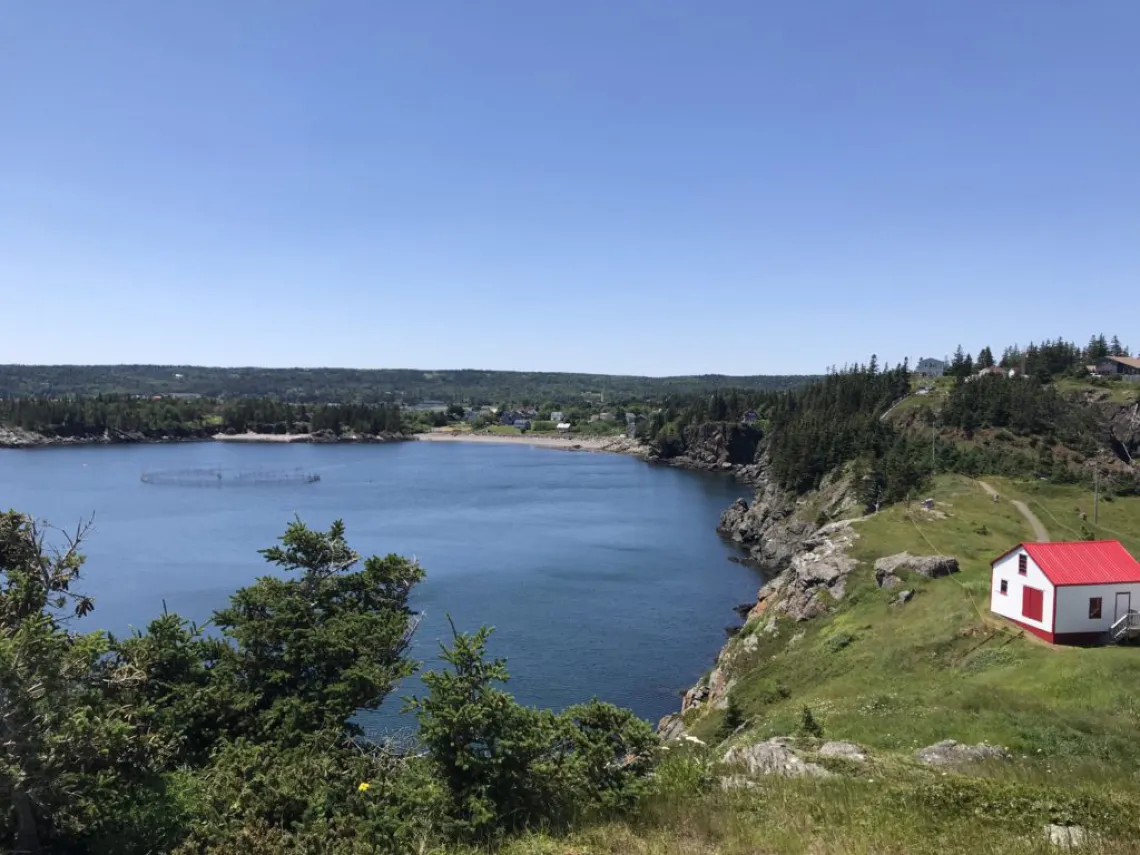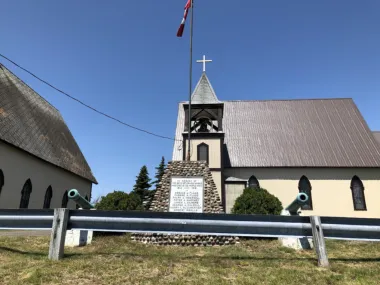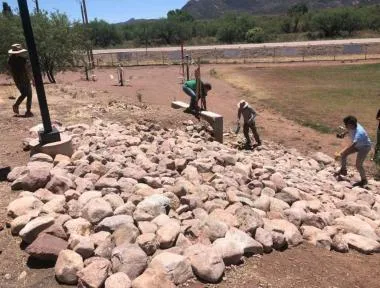UA Field Studies Program Inspires Writing about Environmental and Border Issues

Grand Manan Island. (From Kevin Mosby's blog post)
This summer, six University of Arizona students in the MFA Creative Writing Program participated in the UA’s Field Studies in Writing Program, housed in the Department of English. Three students traveled to Grand Manan Island in the Canadian Maritimes and three to southern Arizona. The program is funded by the Agnese Nelms Haury Program in Environment and Social Justice.
“Ours is the first MFA program to bring creative writing graduate students into site-specific engagement with issues of urgent environmental and social justice concern for the region and nation,” said Susan Briante, professor of English and coordinator of the Southwest Field Studies Program.
“Field Studies has brought a spirit of engagement into the artistic practice of our students,” said Alison Hawthorne Deming, Regents’ English professor and coordinator of the Grand Manan Field Studies Program. “We are currently seeking funds to continue the Southwest project, and we remain deeply grateful to the Haury program for enabling us to launch what has been a very gratifying innovation for creative writing at the UA.”
The students’ blog posts about the two-week program are on the Field Studies Writing website.
Field Studies in Writing Program on Grand Manan

For five summers, three students have traveled to Grand Manan Island, the childhood home of Deming. With a population of 2500 year-round residents, Grand Manan has a 200-year history of traditional fisheries, now undergoing profound changes due to decline of fish – and recently a dramatic increase in lobsters — in the North Atlantic.
With this program, which just finished its final year, students created place-based literature that explores how the arts can contribute to our understanding of environment and climate change. Students also mentor island youth to help them tell their stories of coming of age in a place where sustainability of the local culture is deeply tied to the sustainability of marine life.
This year’s students are: Kim Bussing, Emilio Carrero, and Kevin Mosby.
“We were able to interview a wide range of Grand Mananers, from students to those who have called the island home for many years, learning about their varied experiences, their perspectives on island life and current difficulties, and their view of the island's future,” Bussing said.
In his essay, Mosby wrote of the drug problem on the island. “Gradually, I discovered that nearly everyone on the island had been directly or indirectly affected by a longstanding drug problem, centered largely but not exclusively among the young lobster fishermen of the island who, in the midst of a now decade-long lobster boom, simply don’t know what to do with all the money.”
Carrero, whose research and writing focused on monuments and memorial sites, said both the cultural immersion and group collaboration imbedded in the program helped him grow as a writer and researcher.
“Especially for creative work, the actual in-person experiencing of a place is invaluable,” Carrero said. “It creates a meeting place between individuals and cultures, a cauldron in which both can be alchemized into art.”
Southwest Field Studies in Writing

In 2017, the UA Creative Writing Program launched Field Studies Southwest, which is co-coordinated by Briante and MFA alumnus Francisco Cantú.
MFA students spend two weeks in southern Arizona exploring how literary and documentary arts can create humane responses to environmental, social justice and border issues. The team studied mining and ranching histories and met with groups addressing the aftermath of overgrazing, erosion, and disappearing groundwater. They met with advocacy groups and visited the border wall.
In collaboration with Borderlands Restoration Network, the students offered storytelling workshops for marginalized youth and worked with high school students in hands-on restoration work of the local ecosystem.
This year’s students are: Katerina Ivanov, Logan Phillips, and Miranda Trimmier.
“As a writer I often think about the failings of popular border representations, those tropes that seem to short-circuit the sort of engagement that might make real change,” Trimmier wrote. “The ones that “humanize” humans, or flatten complex violence into simple spectacle, or can’t quite grasp the structural conditions at hand.”
In her essay, Ivanov wrote, “The Americans here tend to speak the word refugee, the word migrant, while thick-tongued with pity, and for some reason, it digs at me. These words themselves can act as an erasure – when will we stop losing complexity? Losing the individuality of so many lives, a specificity that gets swept aside like loose sediment when the border is viewed only as a crisis. When a person is viewed only as a migrant– only as a cause, a threat, a tragedy.”
Phillips said one of the most memorable events for him was serving food at the migrant aid center in Nogales, Sonora.
“The last time I was there, the cafeteria was filled with almost 100% single men. Now, there are so many families and children that the leaders of the shelter led the room in a round of kids’ songs before serving food,” Phillips said. “The desperation and resilience are both astounding.”
Philips added that the program gave him the opportunity to make connections between his love of the region and his academic research.
“Since childhood I’ve found deep purpose and inspiration with being outdoors, among the plants, animals and people of the borderlands region,” Phillips said. “This program helped me reconnect to that primary driver of my work.”
Extra Info
Raquel Gutiérrez, an alumna from the Southwest Field Studies in Writing Program, received a contract to publish a collection of essays begun during her Field Studies residency!

